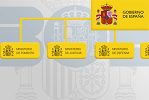Rights of passengers travelling in or from the EU by train
Content
Information on passenger rights
Railway undertakings, station managers and tour operators, when selling rail transport tickets, will inform passengers of their rights and obligations under the Community regulations.
Railway undertakings and station managers will provide this information, at the station and on the train, including the necessary contact details of the national enforcement body or bodies.
This information will be provided, where possible, in accessible format when requested by persons with disabilities or persons with reduced mobility.
Right to travel information
Rail passengers, when they so request, have the right to be informed, before and during the journey, of the following:
Minimum pre-journey information:
- General conditions applicable to the contract
- Timetables and conditions for the fastest journey
- Timetables and conditions for the lowest fares
- Accessibility, access conditions and availability of on-board facilities for persons with disabilities and persons with reduced mobility
- Accessibility and access conditions for bicycles
- Availability of seats or places in smoking and non-smoking carriages, in first and second class as well as couchette cars and sleeping carriages
- Disruptions and delays
- Availability of on-board services
- Procedures for reclaiming lost luggage
- Procedures for the submission of complaints
During the journey, railway undertakings will provide passengers with at least the following information in real time:
- On-board services
- Next station
- Delays
- Main connecting services
- Security and safety issues
The obligation to provide real-time information during the journey on delays and the main connecting services also extends to the Railway Infrastructure Manager, as it is the entity responsible for providing this information to the railway undertakings.
Railway undertakings, ticket vendors or tour operators will provide persons with disabilities and persons with reduced mobility with information on the accessibility of railway services and conditions for accessing rolling stock upon request.
Rail passengers’ rights and the European Commission
The European Commission has the task of protecting passengers’ rights for all modes of transport and ensuring that the Community rules setting out these rights are applied.
You can also access the information made available by the European Commission on passengers’ rights in all modes of transport.![]()
Persons with disabilities and persons with reduced mobility. Non-discrimination
Right to transport, tickets and fares
Railway undertakings and station managers will establish non-discriminatory access rules for the transport of persons with disabilities and reduced mobility.
Reservations and tickets will be offered to persons with disabilities and persons with reduced mobility at no additional cost. They may not be denied a reservation or the issue of a ticket, nor may they be required to travel accompanied by another person, unless this is strictly necessary to comply with the non-discriminatory access rules established by railway undertakings and station managers. If, on the basis of these rules, a reservation or ticket is refused or an accompanying person is required, the railway undertaking, ticket vendor or tour operator making the decision will inform the person with disabilities or the person with reduced mobility concerned in writing of the reasons for the refusal within five working days from the date of the refusal or requirement.
Accessibility to stations and vehicles
When persons with disabilities or reduced mobility leave from, transit through or arrive at a staffed railway station, the station manager will offer assistance free of charge and in such a way that the person in question is able to board the train, transfer to a connecting rail service for which they have a ticket, or alight from the train, without prejudice to non-discriminatory access rules that those station managers must implement.
The provision of assistance is subject to notification of the need for such assistance to the railway undertaking, the station manager, the ticket vendor or the travel operator from whom the ticket was purchased at least 48 hours before the assistance is required.
Loss of or damage to wheelchairs and other mobility equipment
There is no financial limitation if the railway undertaking is liable for any loss of or damage to mobility equipment: in this case, the liability covers the loss of all or part of the mobility equipment or other assistive devices used by persons with disabilities or persons with reduced mobility.
Death of, or personal injury to, passengers in the event of an accident. Advance payments
If a passenger dies or is injured as a result of a train accident, the railway undertaking will, within fifteen days, make such advance payments as may be required to meet the immediate economic needs of the affected passenger or their dependents. That advance payment will not be less than EUR 21 000 in the event of the passenger's death.
The carrier will be exempt from this liability in the following cases:
- If the accident was caused by extraordinary circumstances not connected with the operation of the railway, or by the behaviour of a third party, which the carrier, in spite of the care taken as required by the particular circumstances of the case, was unable to avoid or to prevent the consequences. Another undertaking using the same railway infrastructure will not be considered a third party.
- Fault on the part of the passenger.
Where transport governed by a single transport contract is performed by successive carriers, the carrier obliged under the transport contract to provide the service of transport in the course of which the accident occurred will be liable in case of death of, and personal injury to, passengers.
In case of personal injury or any other physical or mental harm to the passenger the damages will comprise:
- any necessary costs, in particular treatment and transport costs;
- compensation for financial loss, due to total or partial incapacity to work, or to additional needs.
The amount of damages to be awarded will be determined in accordance with national law.
Luggage, transport of animals and of vehicles
Hand luggage and transport of animals
In the event of death of, or personal injury to, passengers, the carrier will also be liable for any loss or damage resulting from the total or partial loss of, or damage to, items which the passenger carried as hand luggage. In this case, the carrier will pay compensation to the passenger up to a limit of approximately EUR 1 500 per passenger.
Registered luggage
The carrier will be liable for any loss or damage resulting from the total or partial loss of, or damage to, registered luggage.
The carrier will be exempt from this liability when the loss, damage or delay in delivery is attributable to the passenger and to the extent that the loss or damage arises from the special risks inherent in one or more of the following circumstances:
- missing or inadequate packing;
- the special nature of the luggage;
- sending luggage articles that are not acceptable for transport.
In case of total or partial loss of registered luggage, the carrier must pay, to the exclusion of all other damages:
- if the amount of the loss or damage suffered is proven, compensation equal to that amount but not exceeding 80 units of account per kilogram less of the gross weight or 1 200 units of account per item of luggage;
- if the amount of the loss or damage suffered is not proven, compensation calculated as 20 units of account per kilogram less of the gross weight or 300 units of account per item of luggage.
Tickets, tariffs, combined tickets and reservations
Railway undertakings and ticket vendors will offer, where available, tickets, combined tickets and reservations.
For more information on fares and tickets, please consult the section Persons with disabilities and persons with reduced mobility. Non-discrimination and for more information on combined tickets, please refer to the Other incidents section.
Boarding, delays, and cancellations
If the Infrastructure Manager establishes a check-in deadline, if any, or security control presentation time for access to train vehicles, the railway undertaking must inform the passenger at least by including these time-limits in the corresponding ticket for passenger rail transport services other than commuter services.
Delays are measured by comparing the passenger's arrival time at their destination to the scheduled time of arrival on the ticket.
When a delay of more than 60 minutes is anticipated, the passenger must be given the immediate choice of:
- Reimbursement of the full cost of the ticket, or for the part or parts of his or her journey not made and for the part or parts already made if the journey is no longer serving any purpose in relation to the passenger’s original travel plan. In this case, the passenger also has the right to a return service to the first point of departure at the earliest opportunity.
- Continuation or re-routing, under comparable transport conditions, to the final destination at the earliest opportunity or at a later date, at the passenger’s convenience.
If the passenger chooses to continue the initial journey despite the delay, they are entitled to compensation. The minimum compensation in case of delay is as follows:
- 25% of the ticket price for a delay of 60 to 119 minutes
- 50% of the ticket price for a delay of 120 minutes or more
The compensation of the ticket price will be paid within one month after the submission of the request for compensation.
However, passengers will not have any right to compensation if they are informed of a delay before buying a ticket.
Undertakings are obliged to inform passengers of train delays and cancellations as soon as the information is available, i.e. in real time. This obligation also extends to the Railway Infrastructure Administrator as it is the entity responsible for providing this information to the railway undertakings in a non-discriminatory manner.
If the train is blocked, the railway undertaking must organise transport for the passengers from the train to the departure railway station, an alternative departure point or to the final destination of the service, where and when physically possible.
If the continuation of the service proves impossible, the company must organise alternative transport services as soon as possible.
Other incidents
Exclusion of passengers
The railway undertaking is entitled to exclude passengers from its transport vehicles who, by their behaviour, disrupt the order in carriages or endanger transport safety. Access to transport vehicles and waiting rooms may also be denied to persons who do not comply with the security controls established for passenger access to the vehicles.
Without prejudice to any penalties that may be applicable to the infringements, excluded passengers will not be entitled to a refund of the ticket price.
Where the staff of the railway undertaking discovers that a passenger is travelling without a valid ticket, they will require the passenger to pay the ticket price and, if they fail to do so, to leave the train at the station where the train is stopped or, if in transit between two stations, at the next station.
Minimum content of the ticket
The transport document or ticket must contain at least the following information:
- The name of the railway undertaking(s) that will provide the transportation.
- The origin of the journey and time of departure.
- The destination and time of arrival.
- Any transfers that may occur with a change of train, specifying the place and time.
- The car, class and seat number.
- The weight and volume of admitted luggage.
- The ticket price, specifying that all taxes are included.
- The luggage charge, if any.
- Information on insurance or other commercial guarantees covered by the service.
- The deadline for check-in, if any, or for presentation at security checks for access to transport vehicles, if established by the railway infrastructure manager.
However, only the following information will need to be included for local services:
- The name of the railway undertaking(s) that will provide the transportation.
- The origin of the journey
- The destination
- The ticket price, specifying that all taxes are included.
In the event that the transport contract is concluded electronically between the railway undertaking and the passenger, the undertaking must provide the passenger with all the information that would be included on the ticket.
In any event, railway undertakings are required to provide information on the general conditions governing the various types of tickets before the user purchases the ticket.
For their part, users must check that all the details on the ticket are correct, before issuing them, and also keep the ticket until the end of the journey.
Rights of railway accident victims and their families
Royal Decree 627/2014 of 18 July on assistance to victims of railway accidents has been applicable since 20 July 2014.
It sets out the rights of victims and their family members.
The right to comprehensive care is guaranteed under the following rights:
- The right to general information about the accident
- The right of access to the station premises or its immediate vicinity
- The right to participate in identification tasks
- The right to transport, accommodation and maintenance
- The right to psychological assistance
- The right to protection of their privacy and dignity, particularly with regard to unsolicited communications
- The right to receive information on financial assistance
- The right to custody, cleaning and return of personal effects
- The right to receive compensation from compulsory passenger insurance
- The rights of foreign victims
Complaints
Complaints to the railway undertaking and/or to the Railway Infrastructure Administrator
Users, in the event of an incident affecting passengers’ rights in such a way as to constitute a breach of national and Community legislation, may file a complaint with the railway undertaking or the Railway Infrastructure Manager, as appropriate.
The complaint may be filed within three months following events that gave rise to it. Once the complaint has been filed, the railway infrastructure managers or undertakings must provide a reasoned reply within one month of receiving the complaint, indicating, where applicable, the measures to be taken.
Complaints can be made either through the IT applications that both the Infrastructure Manager and the railway undertakings must make available to users on their websites, where tickets can be purchased or reserved, or by using the Complaints Book or complaint forms.
Filing complaints with the Directorate General for Land Transport (DGTT, [Dirección General de Transporte Terrestre]) and deadlines for doing so
The Directorate-General for Land Transport (DGTT) is responsible for ensuring compliance with the obligations established in the Community regulations on the rights and obligations of railway passengers. Passengers can therefore file a complaint with this body in case of incidents constituting a breach of these rules.
However, it is important to know that in order to ensure that your complaint is dealt with properly, you must first submit it to the railway undertaking or to the Infrastructure Manager, as applicable.
If you have not received a reply from the undertaking or the Administrator within one month of submitting your complaint, or if you have received a reply with which you disagree, then you can address your complaint to the DGTT.
National enforcement bodies. Special referral to the Transport Arbitration Boards
Each Member State of the European Union will designate a body or bodies responsible for the enforcement of the rights enshrined in the Community regulations. In Spain, the enforcement bodies of the regulations are the Ministry of Transport, Mobility and the Urban Agenda and the Departments of Transport of the Autonomous Communities, each within their respective sphere of competence.
In addition, there are Transport Arbitration Boards in the Autonomous Communities and in the cities of Ceuta and Melilla, before which users can file a complaint, unless the party subject to the complaint has informed them, prior to the service being provided or the time at which it should have been provided, that they do not accept this form of arbitration.
The Arbitration Board selected by the user must be the competent Board for the place of origin or destination of the transport, or the Board corresponding to the domicile of the undertaking providing the service (provided that it is on Spanish territory), unless it has been expressly agreed in writing that a specific Board has jurisdiction.
Users may also opt for the competent Board in the place where they have their habitual residence if it is within Spanish territory.
It should be noted that Transport Arbitration Boards do not have the status of Alternative Dispute Resolution (ADR) bodies.
More information on ![]() Transport Arbitration Boards .
Transport Arbitration Boards .![]()
All of the above is without prejudice to the competences of the Directorate-General for Consumer Affairs![]() , under the Ministry of Health, Consumer Affairs and Social Welfare.
, under the Ministry of Health, Consumer Affairs and Social Welfare.
Courts of Justice
National legislation provides users with the right to have recourse to the ordinary courts.
Therefore, if you are not fully satisfied with the solution offered by the railway undertaking or if it fails to act in accordance with the rules, you can take your case to the courts of justice by filing a lawsuit against the undertaking to enforce your rights and claim damages, if you think it appropriate.
Relevant links
Information for each Autonomous Community











Andalucía Aragón Asturias, Principado de Balears, Illes Canarias Cantabria Castilla y León Castilla-La Mancha Cataluña Ciudad de Ceuta Ciudad de Melilla Comunitat Valenciana Extremadura Galicia Madrid, Comunidad de Murcia, Región de Navarra, Comunidad Foral de País Vasco Rioja, La
Legal and/or technical references
-
Law 16/1987 of 30 July 1987 governing land transport, Articles 37 and 38

-
Regulation implementing the law, approved by Royal Decree 1211/1990 of 28 September 1990, Articles 6 to 12

-
Order FOM/3386/2010 of 20 December 2010 establishing standards of fulfilment by the transport arbitration panels of functions of storage and disposal of goods

-
Regulation (EU) 2021/782 of the European Parliament and of the Council of 29 April 2021 on rail passengers’ rights and obligations (recast) (Text with EEA relevance)











